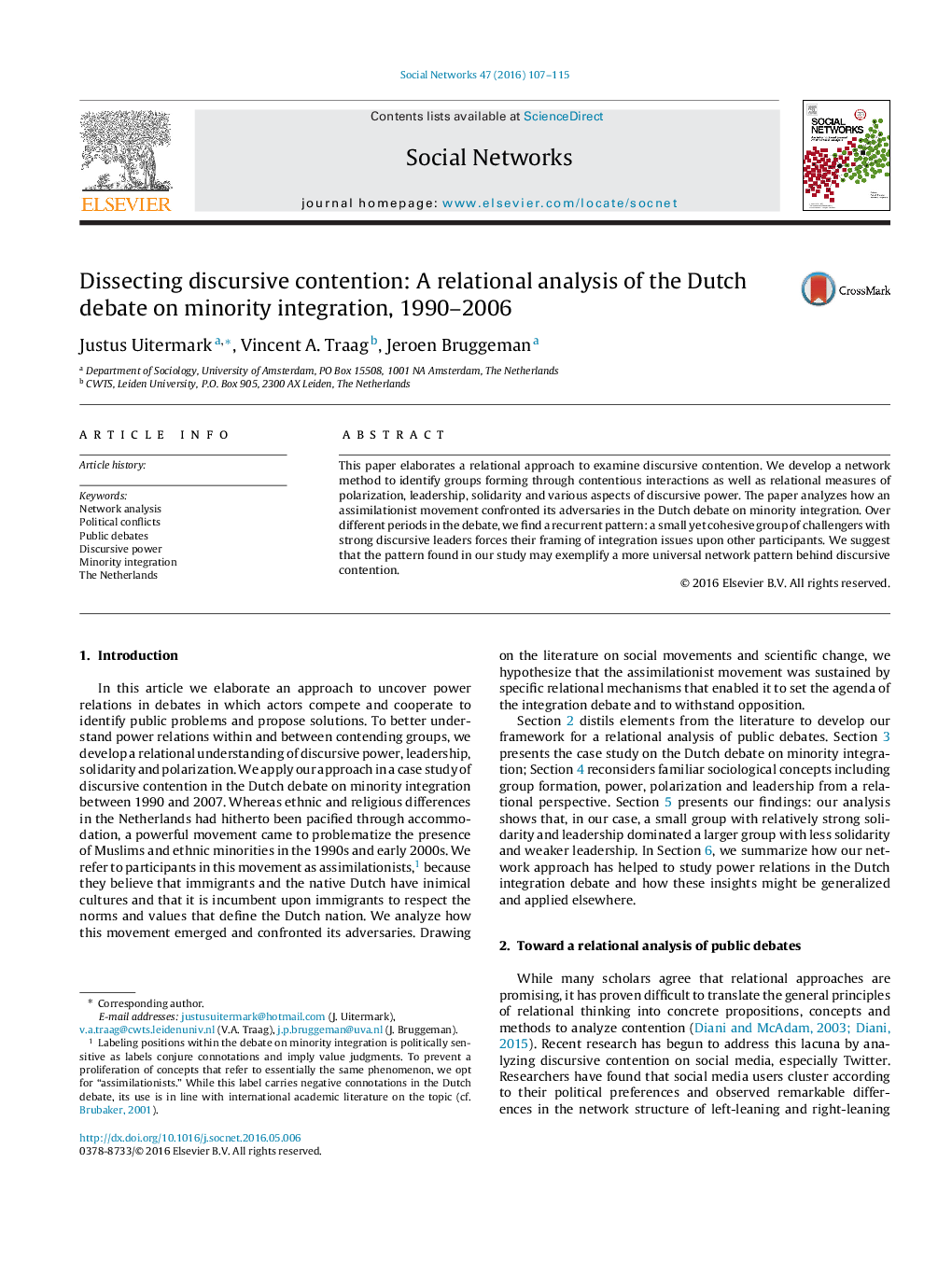| Article ID | Journal | Published Year | Pages | File Type |
|---|---|---|---|---|
| 7538428 | Social Networks | 2016 | 9 Pages |
Abstract
This paper elaborates a relational approach to examine discursive contention. We develop a network method to identify groups forming through contentious interactions as well as relational measures of polarization, leadership, solidarity and various aspects of discursive power. The paper analyzes how an assimilationist movement confronted its adversaries in the Dutch debate on minority integration. Over different periods in the debate, we find a recurrent pattern: a small yet cohesive group of challengers with strong discursive leaders forces their framing of integration issues upon other participants. We suggest that the pattern found in our study may exemplify a more universal network pattern behind discursive contention.
Keywords
Related Topics
Physical Sciences and Engineering
Mathematics
Statistics and Probability
Authors
Justus Uitermark, Vincent A. Traag, Jeroen Bruggeman,
